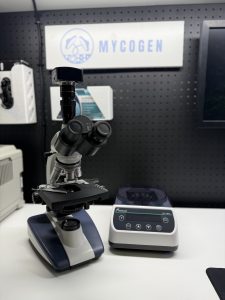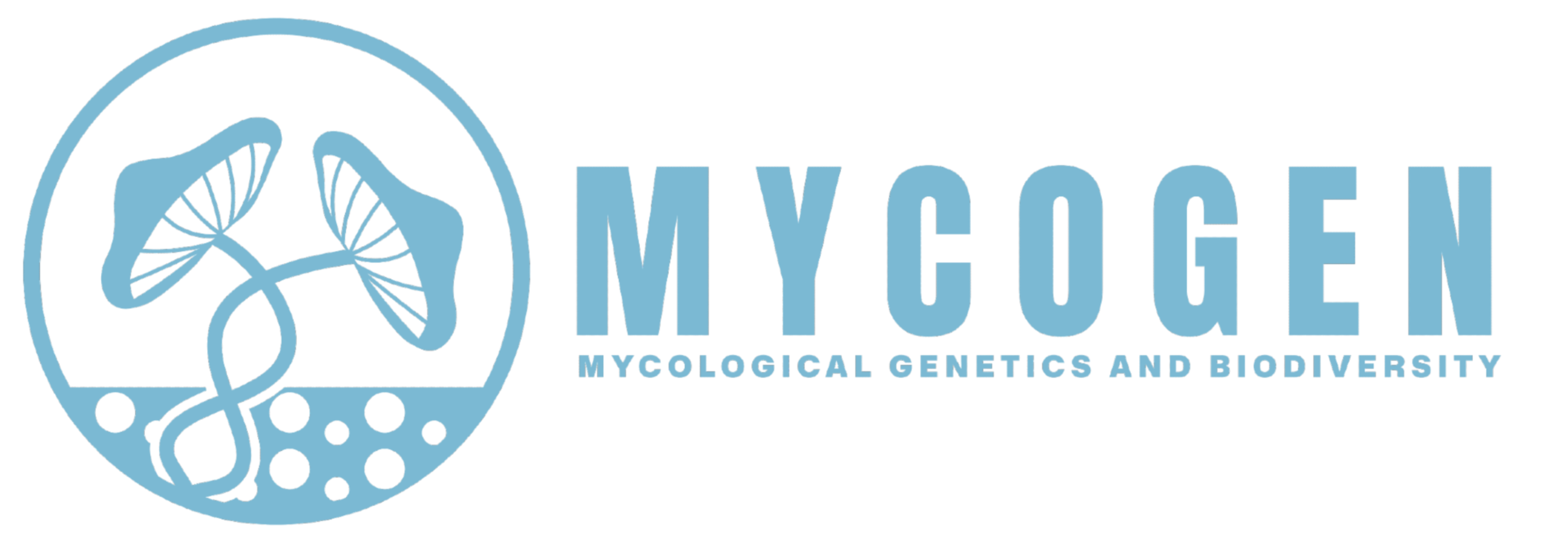Reflections on Establishing MYCOGEN: Citizen Mycology in Australia
Establishing MYCOGEN as a private citizen-operated fungal DNA lab has been a complex yet inspiring process so far. The project aims to build a high-quality fungal biodiversity catalogue for southeast Queensland and, in time, the broader Australian landscape using a combination of field photography, microscopy, traditional taxonomy, and DNA barcoding.
The motivation is straightforward: Australia’s fungal diversity is enormous but vastly under-documented. Estimates suggest there may be up to 250,000 fungal species across the continent, yet fewer than 15,000 have been formally described. Considering the known industrial, agricultural, and medical significance of many fungal metabolites from antibiotics to enzymes there is an urgent need to expand our knowledge base. The next breakthrough compound could well be waiting among our native fungi, entirely undiscovered.
Large institutions face budget, staffing, and time constraints that make comprehensive fungal surveys across all of Australia’s varied biomes — from deserts to rainforests to alpine regions impractical. Citizen scientists represent our best chance to scale this work by providing high-volume, geographically widespread observations supported by physical voucher specimens and robust metadata.
However, the journey has been challenging. Attempts to collaborate with academic institutions in Queensland have often been met with silence or dismissiveness, something echoed by other independent researchers. In the United States, however, collaboration between citizen science groups and academic institutions has become normalised, demonstrating the tremendous value of open partnerships that combine grassroots energy with professional resources. This cultural resistance in Australia limits the potential of partnerships that could otherwise accelerate research outcomes and public engagement.

In addition, access to affordable equipment is a significant barrier. The United States benefits from a strong ecosystem of community labs, second-hand markets, and collaborative field groups. In contrast, Australia has few such resources, making it both expensive and logistically complex to establish even a basic molecular lab. Some of MYCOGEN’s core equipment had to be imported, raising costs substantially.
Despite these obstacles, citizen science in mycology holds extraordinary promise. US-based citizen labs frequently encourage submissions of fungal collections from the general public, dramatically expanding their sampling reach and accelerating species discovery. This dynamic, collaborative culture is precisely what Australia needs to adopt if we hope to document its fungal biodiversity comprehensively.
My hope is that MYCOGEN can help build that culture here by inspiring and empowering others to participate, whether through their own local surveys, community labs, or simply contributing high-quality specimens, photographs and notes to global databases.
There is no shortage of work ahead. Our fungal biodiversity deserves to be documented, preserved, and studied, not just for its ecological roles, but for its untapped potential to solve problems in medicine, agriculture, and industry. Only through a broad, coordinated, citizen-driven effort can we hope to build a foundational dataset worthy of the next generation of researchers and innovators.
If you have even a passing interest in fungi, biodiversity, or grassroots science, there is room for you to contribute. Your time, your observations, and your curiosity are all valuable, together we can help reveal the extraordinary fungal world of Australia for everyone. And who knows? One of us might just find the next world-changing discovery hiding in plain sight.

